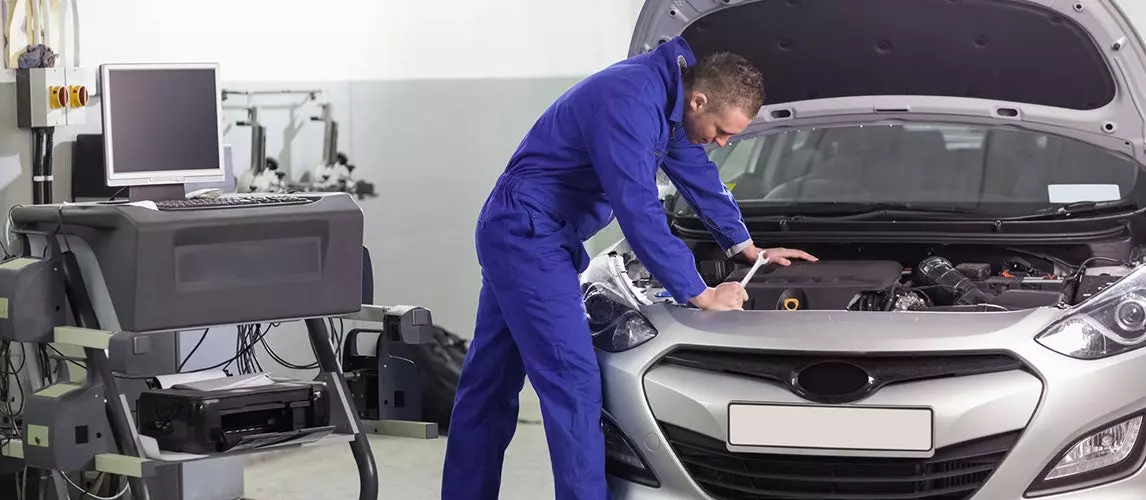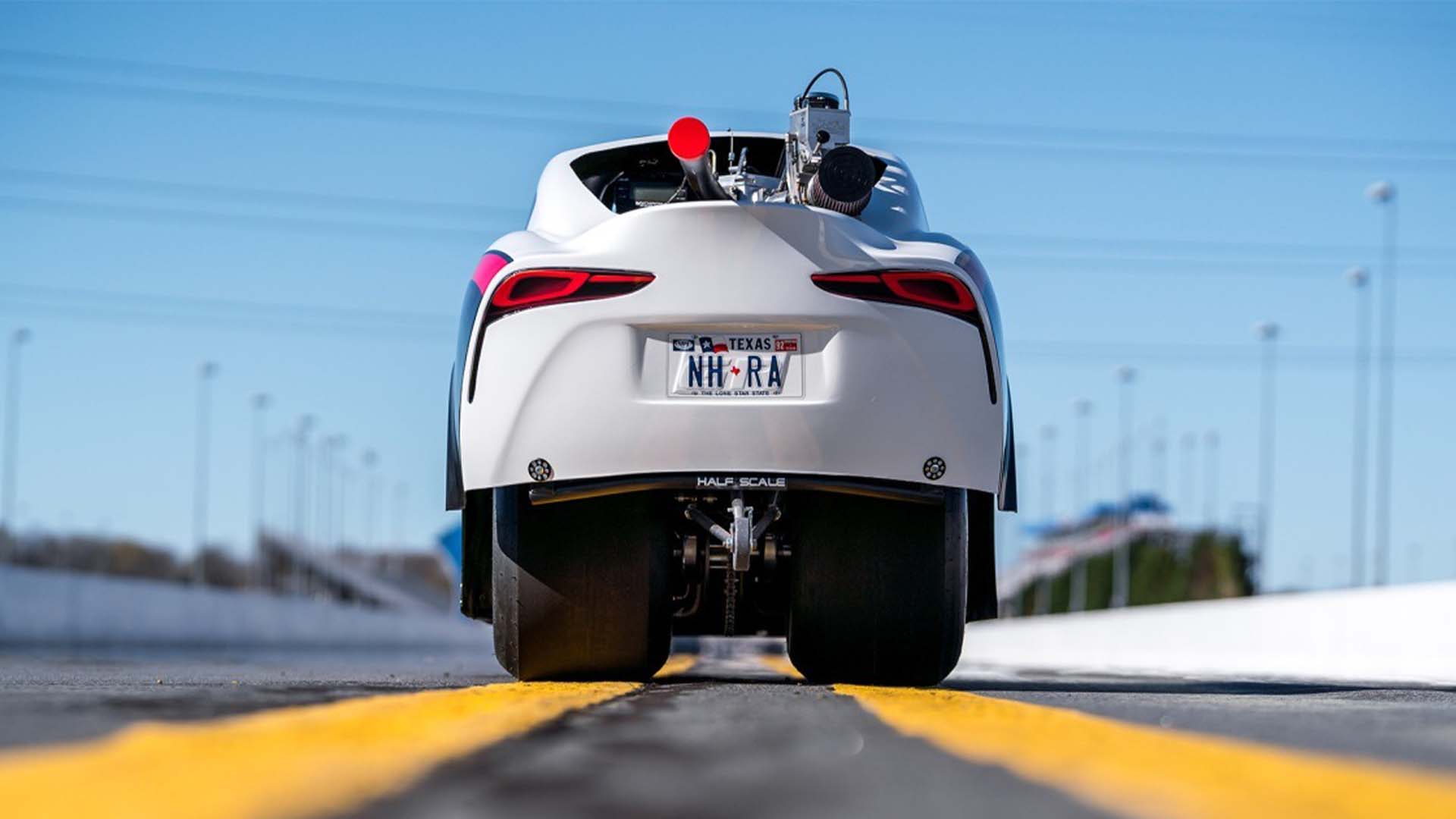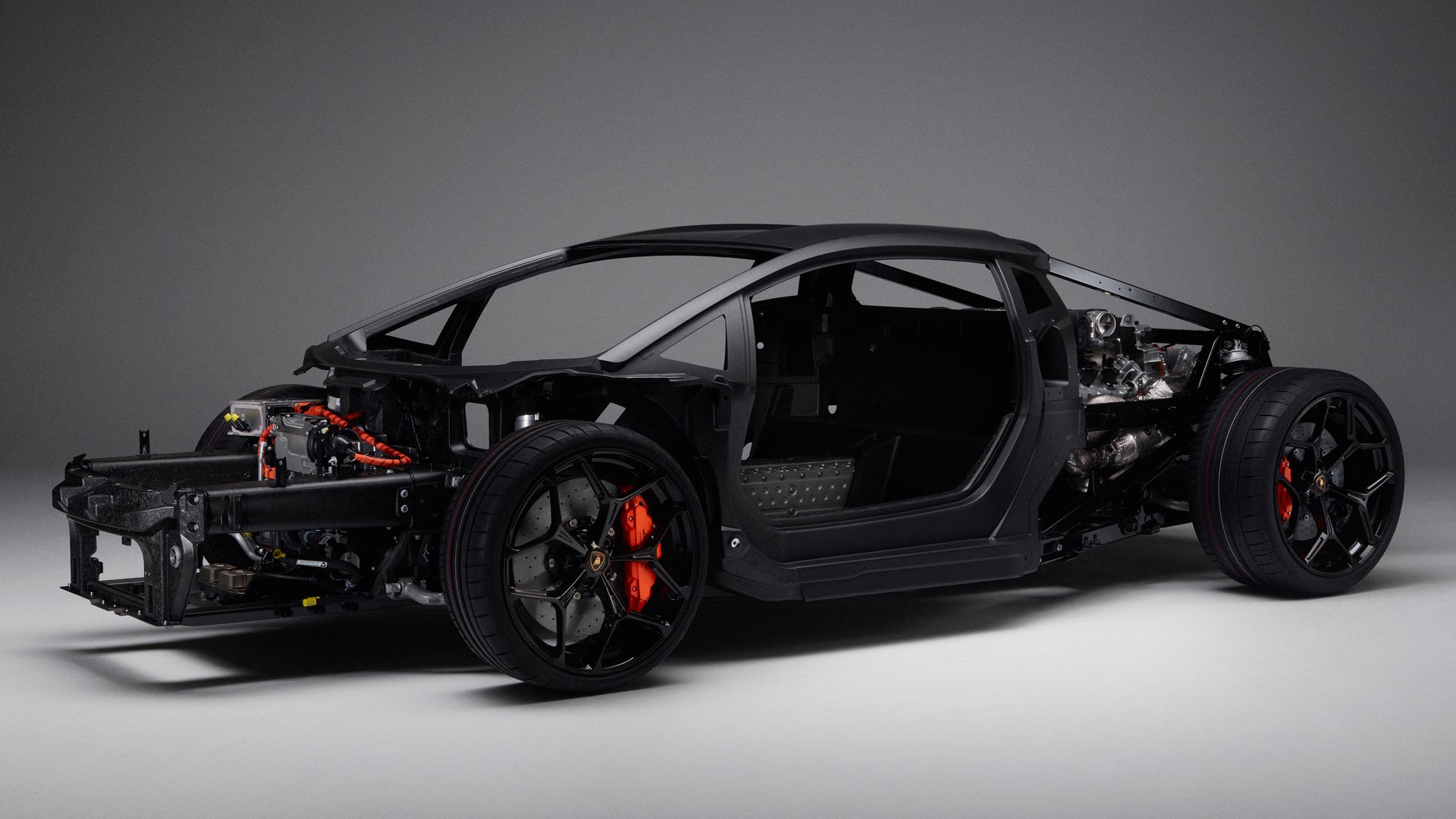Gas leaks in a car are one of the easiest types of leaks to identify. You do not need to look for a puddle of fluid on your garage floor to know that you are leaking fuel somewhere in your vehicle’s system. If your car smells like gas, then there is a 99% chance that you have a gas leak. The big question now is what are you going to do in case you smell gas in your car? To answer this question, it is important to look at the possible reasons why you are leaking fuel in your automobile.
Related Posts: Best Garage Floor Mats and Best Garage Floor Paint
Loose, Faulty, or Missing Gas Cap
As absurd as it may sound, you won’t believe how many vehicle owners complain of a gas-smelling car only to find out that there is an issue with the gas cap. In most instances, the fuel cap did not “lock” into place during refueling. The cap, like any other lid, secures the content of the vessel to prevent it from escaping. But since the fuel tank holds gasoline or diesel, a bit of the liquid can turn into vapors. If the gas cap is not secured the correct way, there is a chance that gas fumes will escape through the partially-closed gas cap.
In some cases, the vehicle owner forgets to replace the cap after refueling. You now have an open access to the fuel tank, protected only from the outside environment by the fuel door. Still, this is enough to emit gas fumes that you and others can smell. It is also possible that the gas leak in car is due to degradation in the gas cap. This is a device that will not last forever. It can crack or get damaged. When it does, then it will no longer be able to perform its fundamental task of keeping gas fumes inside the fuel tank.
The good thing about such issues is that they are quite easy to fix. A missing gas cap means you need to buy a replacement. The same is true with a damaged cap. As for a loose cap, you may want to check if the thread is still intact. If not, then you may also have to replace it. As a matter of rule, always check the condition of your gas cap every time you drive up to the gas station for a refill.
Punctured or Degraded Fuel Tank
Nothing in this world lasts forever. And if you happen to have a very shoddy way of maintaining and caring for your car, there is a good chance that the effects of wear and tear will manifest sooner than usual. This is what can happen in a fuel tank. While it may have ample protection from road elements, it is not impregnable. It is still subject to wear, undergoing degradation over time. There will always come a point when something in the fuel tank has to give.
It is also possible that you hit something that ricocheted through the under chassis of the vehicle and punctured the tank. While this scenario is often associated with off-road vehicles, it can still happen to city-driven vehicles. That’s what you can call a freak accident. The whole point is that any loss in the integrity of the fuel tank can lead to gas leaks. In addition to problems in the fuel tank, there may also be issues with the vent hose. It can convert unburned gas into vapor, giving you that characteristic strong gas odor.
Fixing problems in the fuel tank requires the meticulous eye of a mechanic. He can either replace the fuel tank or apply some quick fixes, depending on the nature of the problem. Hence, when you find yourself asking “why does my car smell like gas?”, you already know where to look.
Problems in the Fuel Line
Most folks call them fuel hoses, although mechanics prefer to call them fuel lines. However you want to call it, a fuel line is a vital connection between the fuel tank and your car’s engine. Without this “lifeline”, your engine will not be able to receive the fuel it needs to produce power.
Unfortunately, fuel lines aren’t indestructible. They are made of rubber that can dry out and crack in the long run. Once cracks form, it is easy for gas leaks to occur. This is another reason why your vehicle may smell like gas.
You can try inspecting the fuel line yourself. As mentioned, it connects the engine and the fuel tank. Hence, you can follow the rubber hose between these two car components. Try to check for visible cracks on the exterior surface of the hose. If the cracks are severe enough, you may also see a puddle of fuel on your garage floor. Dried out fuel hoses require replacement since you cannot patch them up.
Faulty Oil Cap Gasket or O-Ring
One of the most often overlooked reasons why a car smells like gas is a problem in the gasket or O-ring of the oil cap. Gas fumes coming from the engine can escape through a broken or damaged oil cap gasket. The gas fumes get drawn into the car’s heating, ventilation, and air conditioning system (HVAC) fresh air intake. The fumes mix with the air coming from the car’s cabin cooling or heating system, smelling of gas.
Checking for the integrity of the oil cap is easy enough. All you need is to remove the oil cap and inspect the O-ring. Check if there are any missing parts or there is damage. Take note of cracks as these can also let gas fumes escape. The good news is that replacing the oil cap is not expensive. Sourcing the right oil cap for your vehicle may be trickier, though. This is especially the case for older vehicles.
Broken or Loose Spark Plugs
This may come as a surprise for many vehicle owners. However, it is still possible that the gas odor you smell in your car comes from a loose or broken spark plug. These engine parts should fit right into the engine where they get to deliver the “spark” in the combustion chamber. Spark plugs very precise tightening parameters according to the torque recommendations of the vehicle manufacturer.
If the spark plugs were not tightened using the correct torque, it is possible that the sealing ring or the crush washer will leak fumes. These vapors get drawn into the fresh air intake of the car’s HVAC system. From here, the gas fumes travel to the passenger cabin where you and everyone else will be wondering “why does my car smell like gas?”
The first thing you need to do is to check for the condition of the spark plug coils or wires. It is necessary to remove these one at a time. If the wires look fine, try to assess the torque on each of the spark plugs. Next, pull out the spark plugs one at a time and inspect the crush or sealing washers. These should still be intact. If not, then you will need to replace the entire spark plug.
Related Post: Best Spark Plugs
Fuel Injector Leaks
Fuel injector leaks are quite rare. And the most common culprit is damage to the rubber seal or O-ring. Each fuel injector comes with a top O-ring and a bottom rubber seal. These parts of the fuel injector prevent the escape of gas fumes from the combustion chamber. Unfortunately, as nothing is permanent, both the rubber seal and the O-ring can undergo wear and tear. They can dry up and crack.
Checking the problem is quite easy. Start the engine and let it warm up. Try to smell around the fuel rail. If there is a leak in the fuel injector, then you should be able to smell it. Moreover, you may also notice moisture around the problematic fuel injector.
Replacing the O-ring and the rubber seal is easy enough. There is no need to replace the fuel injector if it is still functioning in an efficient manner.
Related Post: Best Fuel Injector Cleaners
Faulty Charcoal Canister
Another reason why there can be a gas leak in car is a faulty charcoal canister. Unfortunately, not many know what this device is, what it does, or where they can find it. This is a container that’s filled with charcoal. It serves to absorb excess fuel vapors coming from the car’s fuel tank. The vapors get purged through the canister, reducing emissions before heading out through the exhaust tailpipe.
Cracks in the charcoal canister can allow the escape of these excess fuel vapors. A faulty seal or vent can also produce the characteristic smell of gas. Diagnosing the problem is easy enough as the Check Engine warning light will often turn on if there is a problem in the charcoal canister. However, it is still best to perform a diagnostic test to be sure before you replace the canister.
If your car smells like gas, it is often associated with a gas leak. Zeroing in on the source of the leak can be quite troublesome, especially for novice vehicle owners. We’re hopeful that this guide can help you find the solution to your car’s gas-smelling issues.
Sources:
- 5 Common Reasons for the Smell of Gas Inside a Car – Axle Addict
- 6 Most Common Reasons Why a Car Smells Like Gas? – Car from Japan
- Is it Safe to Drive With a Gas Leak? – YourMechanic Advice









